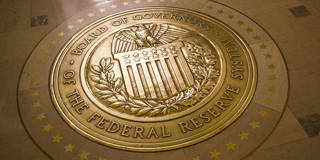According to the traditional rules of politics, the US Federal Reserve and President Joe Biden’s administration should get credit for America’s relatively painless escape from inflation, regardless of whether their past policies helped create it. But do they really deserve it?
CAMBRIDGE – On November 14, remarkably, the US Bureau of Labor Statistics announced that the consumer price index was unchanged in October. To be clear, that means the level of the CPI was unchanged; its rate of growth, or inflation, was actually zero. Of course, one month doesn’t mean much. Gasoline prices won’t plunge 5% every month, as they did between September and October. But there are also more promising – and meaningful – longer term data available: the headline CPI inflation rate over the last 12 months was 3.2%, far below the 6.5% average in 2022. At the risk of tempting fate, one might say that the inflation battle is being won.
Contrary to the predictions of many economists – and the enduring perception of many Americans – the US inflation rate has, so far, come down without a major decline in economic activity or employment. In fact, the economy has added an average of 204,000 jobs per month over the last three months, well above the labor force’s long-term growth trajectory. As a result, unemployment remains under 4%, almost the lowest level since the late 1960s. Meanwhile, annualized GDP growth amounts to 2.3% so far this year, faster than the average rate since the turn of the century.
The story in other developed economies is similar, with inflation rising in 2021-22 and then falling, though their performance lags behind that of the United States. Canada, the eurozone, Japan, and the United Kingdom are all growing more slowly than the US, and inflation in Europe has not fallen as much as it has across the Atlantic. Inflation remains very low in Japan.

CAMBRIDGE – On November 14, remarkably, the US Bureau of Labor Statistics announced that the consumer price index was unchanged in October. To be clear, that means the level of the CPI was unchanged; its rate of growth, or inflation, was actually zero. Of course, one month doesn’t mean much. Gasoline prices won’t plunge 5% every month, as they did between September and October. But there are also more promising – and meaningful – longer term data available: the headline CPI inflation rate over the last 12 months was 3.2%, far below the 6.5% average in 2022. At the risk of tempting fate, one might say that the inflation battle is being won.
Contrary to the predictions of many economists – and the enduring perception of many Americans – the US inflation rate has, so far, come down without a major decline in economic activity or employment. In fact, the economy has added an average of 204,000 jobs per month over the last three months, well above the labor force’s long-term growth trajectory. As a result, unemployment remains under 4%, almost the lowest level since the late 1960s. Meanwhile, annualized GDP growth amounts to 2.3% so far this year, faster than the average rate since the turn of the century.
The story in other developed economies is similar, with inflation rising in 2021-22 and then falling, though their performance lags behind that of the United States. Canada, the eurozone, Japan, and the United Kingdom are all growing more slowly than the US, and inflation in Europe has not fallen as much as it has across the Atlantic. Inflation remains very low in Japan.